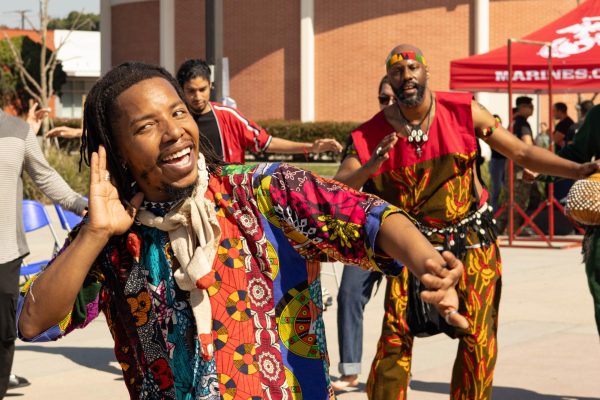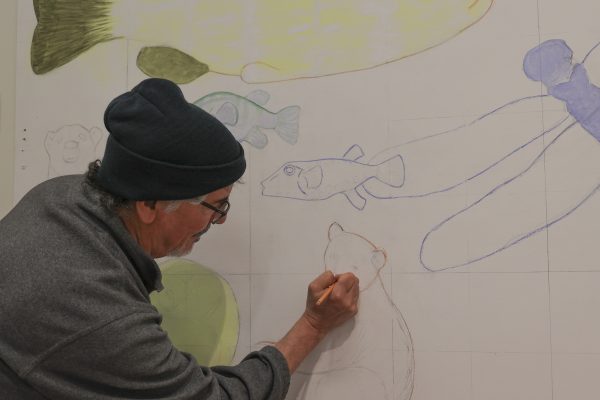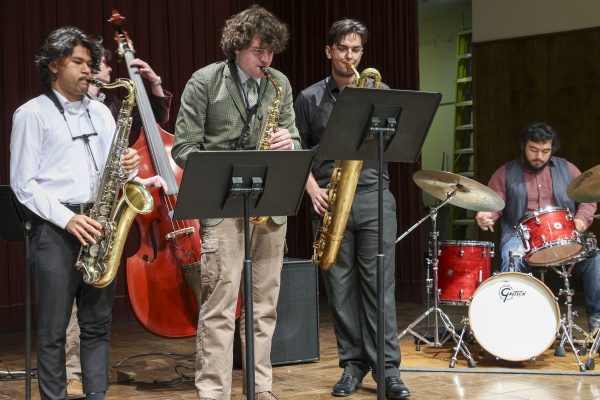Faculty Q and A’s: Music, English and law instructors
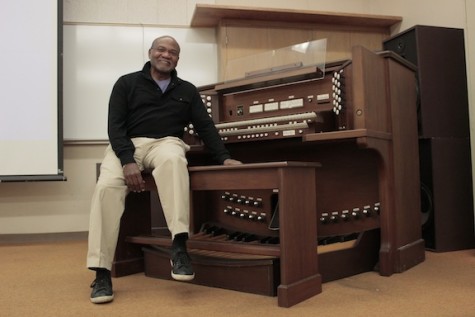
James Hurd – music
Q: When did you start at El Camino?
Hurd: I started part time first in spring of ’71 and then I started full time in fall of ’73.
Q: Why did you chose to teach at El Camino?
Hurd: While I was at USC working on my doctorate, I was teaching part time at El Camino and so, when I finished working on the doctorate, the job opened up as the organist. They needed an organ instructor and that’s what my degrees are in: organ. So I applied and was accepted and I’ve been working ever since, in that capacity. I teach organ now but I was teaching mainly organ at that time. My main classes now are music appreciation and piano and I do private (lessons with) students on campus with the organ.
Q: What’s the biggest change you’ve seen in your time here at El Camino in regards to students, faculty, demographics, administration (or) curriculum?
Hurd: Has anyone said all of the above? Because I feel that that’s really the answer. The biggest change, I think, has been demographics (in regards to) the types of students we had when I first began. And the other big change is the types of things students want to do. I was hired in a day and age when a number of students wanted to be the church organist and now we’re at a point where a lot of churches are using drums and guitars and, therefore, the organ isn’t the popular instrument like it used to be. We had one of the largest organ classes of all the colleges around. We had numerous people coming to El Camino because they wanted to learn how to play the organ so they could be their church organist and we had probably more organ students than USC and UCLA right here. But we’re in a changing time. I’m still an organist at two churches but students are a little bit more protective of their time (which) is a confining thing because, when you’re a church organist, it takes up your time. You need time to rehearse with the choir and (you need) to be there on Sunday morning and you have to play maybe several services on Sunday morning. It can take up your weekend and students are more protective of their free time than they were when I first began. The other thing is that El Camino was only open to students in the district when I started and now there’s no boundary lines. People from all the way in the valley or in Orange County can go to El Camino if they want to. The music department has changed. We have the Applied Program, where, if anyone says they’re a music major, then they have to go through certain hoops here in the department. They have to go into the Applied Program; they take private lessons. But in the early days, they just said “I’m a music major” and we didn’t know what they were doing. But, if they’re music majors now, we have to have a certain curriculum that you follow in order to get out of here as a pre-music major. So those have changed as well. Those are some of the main changes I’ve noticed. Same building though!
Q: What do you want people to know about yourself or the subject you teach?
Hurd: The main subject I’m teaching is music appreciation and it’s a subject that I really enjoy and the students taking the class seem to enjoy as well. I prepare them not only for music but for life, life experiences, realities of life and what you’re going to be up against in life. You may be asking yourself the question “Well what does that have to do with music?” Well, it has to do with the composers of music: people like Beethoven and Bach. Beethoven was deaf and Bach was blind. These composers had setbacks, just like the students, and I let them know that, if these people could succeed, you can succeed as well. I think that’s one of the things that I’ll always incorporate into my lectures is students wanting to think in terms of the long run and their success in the long run. Letting them know that what they’ve come through, all the rest of us came through the same thing.
Q: What’s one thing you’ll always remember about teaching here?
Hurd: I’ll always remember the students. That’s first. The students have left a very positive impact on me. I’ve enjoyed the students very much. I’ve played for students’ weddings. I’ve played for students’ funerals. I have played a number of concerts (and) a number of students have come to the concerts. I’ve gone to some students’ performances as well because, when they leave here, they go to places like USC or something like that. I’ll always remember that so I think it’s my interaction with the students that I’ve come in contact with.
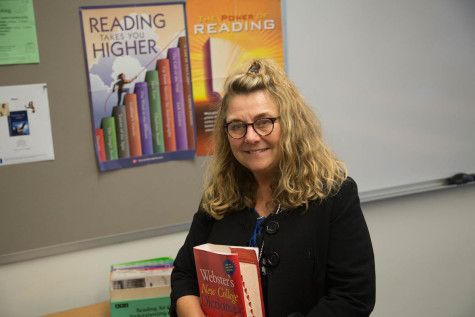
Professor Rosemarie Kistler – English
Q: When did you start at El Camino?
Kistler: I started here as a part-timer in 1978. I was a writer tutor in Steve Montgomery’s Writing Lab.
Q: Why did you choose to teach at El Camino?
Kistler: I was a high school English teacher for a while and I liked the age group of high school students. I had just gotten a master’s degree in basic skills at Loyola Marymount and El Camino was looking for basic skills teachers at the time, so I decided to apply as a part-timer. So I did some part time work and one of my friends who was a full-timer here encouraged me to try to apply for a full time job and I was lucky enough to get one.
Q: What was the biggest change you’ve seen at El Camino?
Kistler: In terms of students, the basic skill needs are getting a little bit stronger. Students are less prepared than they were when I started. Another issue we’ve all begun to see occur more often are issues of behavior. We have to give more lessons in civility in our classes than we used to have to 10-20 years ago. So I have more rules and regulations and I have to review that sort of thing with the students more often than I’ve ever done before. With regard to administration and what’s required of us, we seem to have to do more paperwork, more editing of our classes, more answering to the state on certain requirements. I’ve been here so long, I’m beginning to see the same thing happening over and over again using different terminology and different ways of evaluating our process here and how we teach and what we’re striving for in our goals. So it’s the same old same old but said in a different way each time we get mandates from the state or from the administration.
Q: And have you experienced any positive changes over the years?
Kistler: Well, I’ve been doing this over 30 years. I still get joy from doing the job and seeing the students progress so that in itself has kept me going and will keep me going hopefully in the future for a few more years. It’s a rewarding job when you can reach students and it’s a hard job when you can’t and there isn’t a door open where you can go in and find that student to help that student out.
Q: What do you want people to know about yourself or the subject that you teach?
Kistler: Well I always tell my students I’m old school. And so I ask them, “What does that mean?” They go, “Do you write on the board?” I say, “Yeah, I write on the board.” I give quizzes; I have high expectations of the students. I expect them to want to learn and I show them the ways to do it. I’m a pusher. I push them to persevere and to do well. I expect that and I expect them to come to me for help and get some assistance themselves when they are finding that they are failing in the class.
Q: What’s one thing you’ll always remember about teaching here?
Kistler: In one of the courses I teach, I ask (students) to choose a book and read it because I’m trying to form a reading habit. They’re in a reading class and they haven’t read very much. I always get pleasure out of them telling me that this is the first book they’ve ever read cover-to-cover in their entire life and that I’ve turned them on to reading and that they’re going to continue to read once they leave my class. (laughs) Now, whether they do that or not is a different story but I hope they do that and the reading habit that I instill in them is what I want them to leave with in my class and at El Camino.
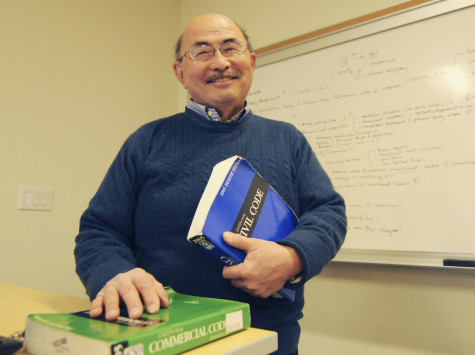
Professor Jerry Muraoka – law
Q: When did you start at El Camino?
Muraoka: Fall of ’77.
Q: Why did you choose to teach at El Camino?
Muraoka: First off, I came to El Camino as a student. I started my own education here. It’s a very good school. It’s close by. (It has an) excellent reputation. When I decided I wanted to go ahead and teach, this is the place I applied.
Q: What’s the biggest change you’ve seen at El Camino?
Muraoka: Obviously, there’s been a physical improvement in terms of the plant over the last ten years. Some of the other changes are probably in the area of technology. Obviously, there’s a great emphasis on computers and electronics versus traditional blackboards and those kinds of things. As far as the difference between students now and then, I think students rely on technology too much. They become smarter in the sense of technologically smarter but I think there’s something to be said for a lack of basic skills. I think students today are probably less prepared when they come to college than in the past.
Q: What do you want people to know about yourself or the subject you teach?
Muraoka: I teach two things and it’s a combination of the two: law and teaching. I think both are extremely important. Law protects the rights of people to pursue what they want to do. Teaching is the method by which they can accomplish their goals. Horace Mann says that public education is the great equalizer. It doesn’t matter where you come from, what kind of background (you have): rich or poor. Basically, knowledge is power and it gives you the tools to achieve whatever you basically want to do. I think that teaching people the law helps them because they can basically protect their own rights and, again, educating as many people as I can is probably the most important thing that I could ever do.
Q: What’s the one thing you’ll always remember about teaching here?
Muraoka: Students. I find it remarkable. I run into former students all the time in some of the most unusual places and they seem to remember me from years ago and I really find that rewarding. It’s not just getting a grade and leaving and all of that. There are the students who really take from the class, who learn something from it and appreciate it and let you know (much) time later. I’ve had a number of students who wanted to go to law school and those kinds of things. This past winter session, I had a student who I wrote some letters of reference for. He’s at Columbia Law School this year. It’s his first year and he sent me an email that he’s back here in Southern California for the holidays and he really appreciated the fact that I wrote the letters for him for various schools. Those are the times that I really find rewarding.



